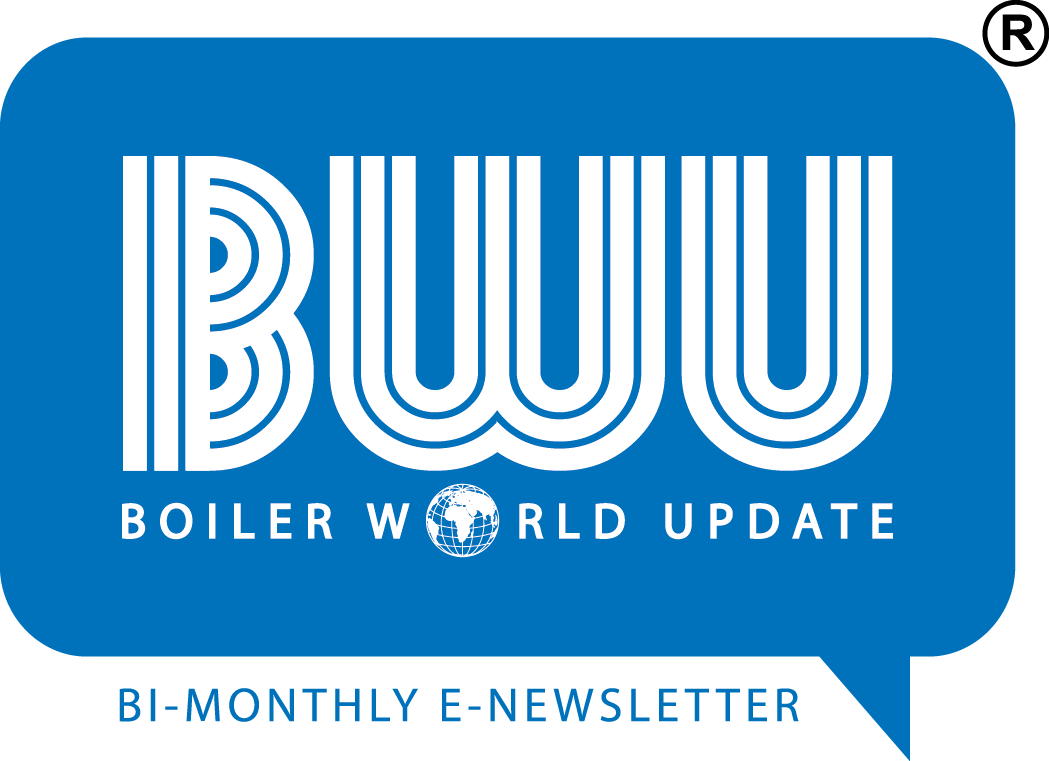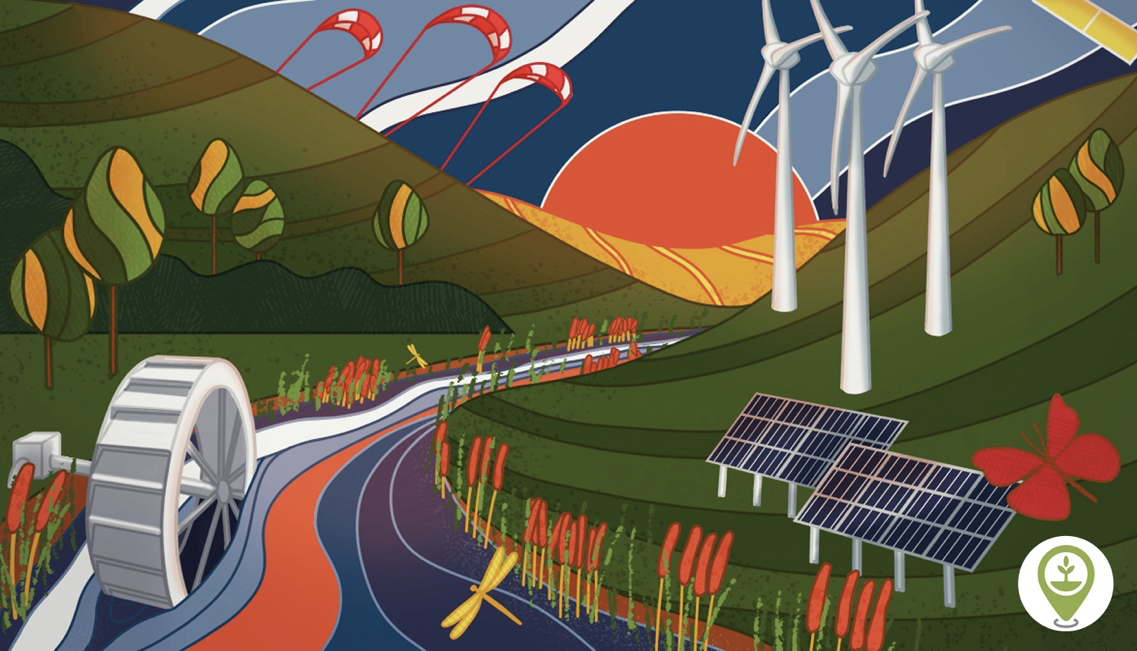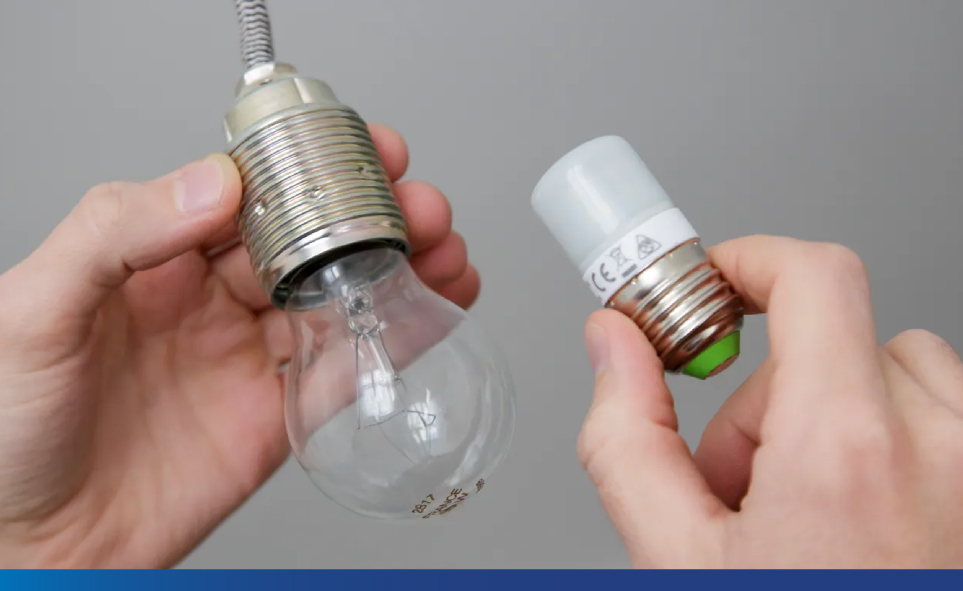
Name: Gajanan D. Wankhede
Organisation: Directorate of Steam Boilers, Govt. of Maharashtra
Designation: Joint Director
Education: B.E. (Mechanical), DIT (CEDTI) (Visvesvaraya National Institute of Technology, Nagpur)
12 years at Chandrapur Super Thermal Power Station. 18 years at Directorate of Steam Boilers, Govt. of Maharashtra.
2016 to 2022- Secretary, Board of Examiners, Maharashtra State. 2021 to till date, Member, Gasket & Packing Sectional Committee, BIS.
How many more years will I be able to use my boiler?
This question, I am sure troubles many boiler users. The answer to the question is in Regulation 391A, which defines aging of Boiler. In this regulation it is very well defined and illustrated with the help of tables. It becomes simple to understand and determine Remnant Life of a Boiler.
In view of consideration of the aging effect on Boilers, following guidelines are provided in the Indian Boiler Regulations, 1950.
This regulation provides guidelines for assessment of ageing effect on boilers according to the classification of boilers into mainly two categories.
- Shell Type Boilers
- Water Tube Boilers
Regulation No. ⇒ 391A. ⇒ Ageing of Boilers
a) Shell Type Boilers
i) In order to take the aging effect on boilers, the working pressure as calculated from the formulae in these regulations shall be reduced as per the table given below
TABLE
| Age of Boiler Exceeding (in Years) | 25 | 35 | 45 | 50 | 60 | 70 | 80 | 90 | 100 |
| Maximum permitted working pressure in percent | 95 | 90 | 85 | 80 | 70 | 60 | 50 | 40 | 30 |
ii) for those boilers, the plates of which have already been cut and tested shall be given a further lease of life of fifty years from the date of test of the boilers. The working pressure that shall be allowed after the testing shall be reduced as per the table given below:
| Period after date of test (in Years) | 10 | 20 | 30 | 40 | 50 |
| Maximum working pressure allowed (percentage) | 90 | 80 | 70 | 50 | 30 |
iii) Shell Type Waste Heat Boilers(un-fired): (As per amendment vide Govt of India, Gazette Notification dt 11/09/2020)
- Shell type waste heat boilers (unfired), on completion of a life of twenty-five years, shall be non-destructively tested by a Remnant Life Assessment Organisation approved by Central Boilers Board.
- Pressure parts, including shells, endplates, stand pipes, of such boilers, shall be inspected by ultrasonic testing, magnetic particle testing and dye penetrant testing.
- If results are acceptable as per the standards laid down by the Central Boilers Board, a certificate shall be issued by the Chief Inspector or Director of Boilers, as the case may be, for extending the life of the boiler for a further period of twelve years or such less period as recommended by the Remnant Life Assessment Organisation.
- The working pressure of such boilers may be reduced on the recommendation of the Remnant Life Assessment Organisation.
- The assessment of remnant life by non-destructive testing shall be carried out thereafter every twelve years by a Remnant Life Assessment Organisation approved by the Central Boilers Board and the agency shall work in close coordination with the office of the Chief inspector or Director of Boilers, as the case may be.
Note:
- It shall at the option of the owner to opt for the provisions of Para (i) or Para (ii) above or opt for the Remnant Life Assessment of boiler as per para (iii).
- Wherever, it is not possible to carry out non-destructive testing of boiler for Remnant Life Assessment, provisions of para (i) or para (ii) shall be applicable.
- Water Tube Boilers
- The boilers which are operating at a temperature of 400°C (main steam outlet temperature) and above shall be tested by Remnant Life Assessment Organisation for the components as per Table 1 given below after they are in operation for 100,000 hours for assessment of the remnant life of the components.
If results are acceptable as per the standards laid down by the Central Boilers Board, a certificate shall be issued by the Chief Inspector/Director of Boilers as the case may be, for extending the life of the boiler for a further period of six years or such less period as recommended by the Remnant Life Assessment Organisation. This assessment of remnant life shall be carried out thereafter every six years by a Remnant Life Assessment Organisation approved by the Central Boilers Board. The Remnant Life Assessment Organisation shall work in close coordination with the office of the Chief Inspector/Director of Boilers as the case may be, in the field of remnant life assessment and extension. The working pressure of such boilers may be reduced on the recommendations of the Remnant Life Assessment Organisation;
Table1
| Component | Visual | Ultrasonic Testing | Magnetic Particle Inspection | Liquid/Dye Penetrant Inspection | Replication | Sampling | Deposit Analysis | Outside Diameter and Thickness | Fibre Optic Inspection | Hardness | Others |
| 1 | 2 | 3 | 4 | 5 | 6 | 7 | 8 | 9 | 10 | 11 | 12 |
| Steam Drum | yes | yes | yes | yes | yes | No | Yes@ | Yes* | No | Yes | —- |
| Water Drum | Yes | Yes | Yes | Yes | Yes | No | Yes@ | Yes* | No | Yes | —- |
| Bottom Headers | Yes | Yes | No | Yes | No | No | No | Yes | Yes | Yes | —- |
| Low Temperature Header (Less Than 4000C) | Yes | Yes | No | Yes | No | No | No | Yes | Yes | Yes | —- |
| Attemperator Header | Yes | Yes | No | Yes | Yes | No | No | Yes | Yes | Yes | Swell Measurement |
| Economizer Tubes | Yes | No | No | No | No | Yes | No | Yes | No | Yes# | —- |
| Convection Superheater | Yes | No | No | No | No | Yes | No | Yes | No | Yes# | Non-Destructive Oxide Thickness Inspection |
| Primary Superheater Coils | Yes | No | No | No | No | Yes | No | Yes | No | Yes# | |
| Prefinal Superheater Coils | Yes | No | No | No | No | Yes $$ | No | Yes | No | Yes# | |
| Final Superheater Coils | Yes | No | No | No | No | Yes $$ | No | Yes | No | Yes# | |
| Reheater Coils | Yes | No | No | No | No | Yes $$ | No | Yes | No | Yes# | |
| High Temperature Headers (400°C and above) | Yes | Yes | No | Yes | Yes | No | No | Yes | Yes | Yes | Swell measurement |
| Main Steam Piping | Yes | No | No | No | Yes | No | No | Yes | No | Yes | —- |
| Cold Reheat Piping | Yes | No | No | No | No | No | No | Yes | No | Yes | —- |
| Hot Reheat Piping | Yes | No | No | No | Yes | No | No | Yes | No | Yes | —- |
| SH/RH Links | Yes | Yes | No | Yes | Yes | No | No | Yes | No | Yes | —- |
| Bank Tubes | Yes | No | No | No | No | No | No | Yes | No | No | —- |
| Furnace Water walls | Yes | No | No | No | No | Yes | Yes@ | Yes | No | No |
Note:
Other Components shall be checked/examined visually.
*OD or ID measurement to be taken for steam Drum and water drum/bottom headers.
#Hardness of Tube samples (both inside and outside) to be checked at laboratory.
@ Deposit analysis to be done;
$$ Sample shall be subjected to accelerated creep rupture test.
- The boilers which are operating at a temperature of less than 400°C (main steam outlet temperature) on completion of a life of twenty-five years are to be tested by the Remnant Life Assessment Organisation for the components as per Table 2 given below for assessment of remnant life of the components.
If results are acceptable as per the standards laid down by the Central Boilers Board, a certificate shall be issued by the Chief Inspector/Director of Boilers as the case may be, for extending the life of boiler for a further period of twelve years or such less period as recommended by the Remnant Life Assessment Organisation. This assessment of remnant life shall be carried out thereafter every twelve years by a Remnant Life Assessment Organisation approved by the Central Boilers Board. The Remnant Life Assessment Organisation shall work in close coordination with the office of the Chief Inspector/Director of Boilers as the case may be, in the field of remnant life assessment and extension. The working pressure of such boilers may be reduced on the recommendations of the Remnant Life Assessment Organisation.
Notwithstanding anything contained in this regulation, for boilers working at a pressure less than 50 kg/cm2 and temperature less than 400°C (main steam outlet temperature), such elaborate remnant life assessment is not mandatory. However, in such cases, drums and headers of such boilers shall be inspected by Ultrasonic testing, Magnetic particle testing, and Dye Penetrant testing.
Table 2
| Component | Visual | Ultrasonic Testing | Magnetic Particle Inspection | Liquid/Dye Penetrant Inspect | Replication | Sampling | Deposit Analysis | Outside Diameter and Thickness | Fibre Optic Inspection | Hardness | Others |
| 1 | 2 | 3 | 4 | 5 | 6 | 7 | 8 | 9 | 10 | 11 | 12 |
| Steam Drum | Yes | Yes | Yes | Yes | Yes | No | Yes@ | Yes* | No | No | —- |
| Water Drum | Yes | Yes | Yes | Yes | Yes | No | Yes@ | yes* | No | No | —- |
| Economizer Tubes | Yes | No | No | No | No | Yes | No | Yes | No | No | —- |
| Convection Superheater Coils | Yes | No | No | No | No | Yes | No | Yes | No | No | —- |
| Primary Superheater Coils | Yes | No | No | No | No | Yes | No | Yes | No | No | —- |
| Final Superheater Coils | Yes | No | No | No | No | Yes | No | Yes | No | No | —- |
| Water Headers | Yes | Yes | No | Yes | No | No | No | Yes | Yes | No | —- |
| Steam Headers | Yes | Yes | No | Yes | No | No | No | Yes | Yes | No | —- |
| Bank Tubes | Yes | No | No | No | No | No | No | Yes | No | No | —- |
| Furnace WaterWall | Yes | No | No | No | No | Yes | Yes@ | Yes | No | No | —- |
| Main Steam Piping | Yes | No | No | Yes | No | No | No | Yes | No | No | —- |
Note:
Other components shall be checked / examined visually
*OD or ID measurement to be taken for steam drum and water drum /bottom headers
@ Deposit analysis shall be undertaken at laboratory.
Heat Recovery Steam Generators (HRSGs)
Heat Recovery Steam Generators (HRSGs) which are operating at a temperature of 400°C (main steam outlet temperature) and above shall be non-destructively tested by the Remnant Life Assessment Organisation for the components as per Table 3 given below after they are in operation for 100,000 hours for assessment of remnant life of the components.
Table 3
| Component | Visual | Ultrasonic Testing | Magnetic Particle Inspection | Liquid/Dye Penetrant Inspection | Replication | Sampling | Deposit Analysis | Outside Diameter (OD) and Thickness | Fibre Optic Inspection | Hardness | Others |
| 1 | 2 | 3 | 4 | 5 | 6 | 7 | 8 | 9 | 10 | 11 | 12 |
| SH/RH tubes | No | No | No | No | No | Yes * | No | No | No | Yes * | —- |
| SH/RH Inlet & Outlet Header | Yes | No | No | No | Yes # | No | No | Yes | No | Yes | —- |
| DESH Heade | Yes | No | No | No | Yes # | No | No | Yes | No | Yes | —- |
| DESH inlet & outlet link | Yes | No | No | No | Yes # | No | No | Yes | No | Yes | —- |
| Drum | Yes | Yes | Yes | Yes | Yes | No | Yes | ID & thickness | No | Yes | —- |
| Down Comers | Yes | No | No | No | No | No | No | Yes | No | Yes | —- |
| Evaporator Outlet Links | Yes | No | No | No | No | No | No | Yes | No | Yes | —- |
| Evaporator Tubes | No | No | No | No | No | Yes * | Yes * | No | No | Yes * | —- |
| Economizer Tubes | No | No | No | No | No | Yes * | Yes * | No | No | Yes * | —- |
| Economizer Inlet & Outlet Header | Yes | No | No | No | No | No | No | No | No | Yes | —- |
| Economizer to Drum Link | Yes | No | No | No | No | No | No | Yes | No | Yes | —- |
* To be decided based on the history of failure
# For SH/RH headers above 400°C.
Regulation No. 376(ff) & 376(fff)
Many Boiler Users and BOE are unaware of many changes in the regulations, hence today we shall be discussing the same here in detailed manner. The regulations for boilers used exclusively for electric power generation and waste heat boilers used exclusively in continuous process plant are somewhat different than other regular boilers. The regulations are amended from time to time to ease the use of these boilers taking into consideration the requirements of industry and the difficulties faced by them. The State Inspecting Authority and boiler users give feedback and recommendations on various aspects of boilers to the Central Boilers Boards, New Delhi which if accepted are amended into new regulations. Amendments to regulations are done from time to time to fine tune them and make them more user-compliant without compromising on Boiler safety.
Regulation No. 376(ff)
For boilers used exclusively for electric power generation, the inspection shall be carried out in accordance with provisions of Appendix JA.
APPENDIX JA {see regulation 376(ff)}
- Power boilers working at a pressure above 100 kg/cm2 and up to 100,000 hours of operations.
- The boilers working at a pressure above 100 kg/cm2 and up to 100,000 hours of operations, generating steam for power generation shall be inspected as detailed below after the expiry of twelve months from the date of inspection carried out in accordance with the procedure provided in regulation 390 and certification of fitness shall be issued by the concerned Competent Person in the State, through inspection of the following records which shall be made available along with application in Form – XIX duly filled in, to the concerned Competent Person at least thirty days before the expiry of the operating certificate, provided he is satisfied that the boiler can be allowed to be operated for a further period of twelve months.
- Operation data for superheater and reheater temperature excursions from the output of the Data Acquisition System (DAS).
- History of shutdowns during the previous year with their causes and actions are taken.
- Records of any Non-Destructive test carried out on the boiler pressure parts during the year.
- Water quality to the boiler is maintained up to the requirement of such boilers and online data of the quality be provided.
- Boiler tube failure record (location, number of tubes repaired/replaced).
- Inspection shall be carried out by the concerned Competent Person at the expiry of twenty-four months as provided in regulation 390. However, in case of shutdown of fifteen days or more any time before the expiry of the certification period and after six months of the certification, the Competent Person shall be duly informed so that inspection can be scheduled during the said shutdown period.
- The boilers working at a pressure above 100 kg/cm2 and up to 100,000 hours of operations, generating steam for power generation shall be inspected as detailed below after the expiry of twelve months from the date of inspection carried out in accordance with the procedure provided in regulation 390 and certification of fitness shall be issued by the concerned Competent Person in the State, through inspection of the following records which shall be made available along with application in Form – XIX duly filled in, to the concerned Competent Person at least thirty days before the expiry of the operating certificate, provided he is satisfied that the boiler can be allowed to be operated for a further period of twelve months.
- Power boilers working at a pressure up to 100 kg/cm² and up to 100,000 hours of operations or 25 years of operations as applicable.
- The boilers working at a pressure up to 100 kg/cm² and up to 100,000 hours of operations for boiler operating above 400°C and 25 years of operation for boilers operating less than 400°C generating steam for power generation shall at the expiry of twelve months from the date of inspection carried out in accordance with the procedure provided in regulation 390 and certification of fitness by the concerned Competent Person in the State, and having satisfied with the operation records at paragraph A, shall be allowed for running for another period of twelve months.
- Inspection shall be carried out by the concerned Competent Person at the expiry of twenty-four months as provided in regulation 390. However, in case of a shutdown of fifteen days or more any time before the expiry of the certification period and after six months of the certification, the Competent Person shall be duly informed so that an inspection can be scheduled during the said shutdown period.
- Power boilers working at a pressure above 100 kg/cm² and more than 100,000 hours of operations.
- Boilers working at a pressure above 100 kg/cm² and more than 100,000 hours of operations, generating steam for power generation shall continue to be subject to inspection as provided in regulation 390 every year to the satisfaction of the concerned Competent Person in the States. However, if Remnant Life Assessment (RLA), as per provisions in these regulations is carried out on the boiler and is found satisfactory, then the procedure as per paragraph “A” above shall be applicable.
- Inspection shall be carried out by the concerned Competent Person at the expiry of twenty-four months as provided in regulation 390. However, in case of a shutdown of fifteen days or more any time before the expiry of the certification period and after six months of the certification, the Competent Person shall be duly informed so that an inspection can be scheduled during the said shutdown period.
- Power boilers working at a pressure up to 100 kg/cm² and more than 100,000 hours of operations or twenty-five years of operations as applicable
- Boilers working at a pressure up to 100 kg/cm² and more than 100,000 hours of operation for boilers operating above 400°C and twenty-five years of operation for boilers operating less than 400°C, shall continue to be subjected to inspection every year as provided in regulation 390. However, if Remnant Life Assessment (RLA) as per provisions in these regulations is carried out on the boiler and if found satisfactory, then the procedure as per paragraph “B” above shall be applicable.
- Inspection shall be carried out by the concerned Competent Person at the expiry of twenty-four months as provided in regulation 390. However, in case of a shutdown of fifteen days or more any time before the expiry of the certification period and after six months of the certification, the Competent Person shall be duly informed so that an inspection can be scheduled during the said shutdown period.
Note: Whenever High Pressure (HP) and Low Pressure (LP) boilers operate from the same enclosure, the procedure for inspection as applicable to High Pressure (HP) boiler shall also be applicable to Low Pressure (LP) boiler.
Regulation No. 376 (fff)
For Captive Boilers and Waste Heat Boilers (Fired and Unfired) used exclusively in continuous process plants, the inspection shall be carried out in accordance with the provisions of Appendix JB. The boilers used in corrosive environments such as Sulphuric acid plants shall not be covered under provisions of Appendix JB
APPENDIX JB (as per latest amendment in IBR, 1950 dt. 11/09/2020)
- Waste Heat Boilers (Fired) up to twenty years of age used exclusively in the continuous process plant.
- For Waste Heat Boilers (Fired) up to twenty years of age used exclusively in continuous process plant, at the expiry of twelve months and at twenty-four months from the date of inspection carried out in accordance with the procedure provided in regulation 390 and certification of fitness issued by the concerned Competent Person in the State, and having satisfied with the operation records as given below received along with application in Form XIX duly filled in shall be allowed for running for another period of twelve months:
- Operation data for superheater and reheater temperature excursions from the output of Data Acquisition System (DAS) or operation data for superheater temperature excursions maintained in the log sheet temperature record;
- History of shutdowns during the previous year with their causes and actions are taken;
- Records of any Non-Destructive test carried out on the boiler pressure parts during the year;
- Water quality to the boiler is maintained as per the requirement of such boilers and online data of the quality be provided through Data Acquisition System (DAS) or through the water quality record logbook maintained at the plant or at the source of water;
- Boiler tube failure record (location, number of tubes repaired/replaced).
- Inspection shall be carried out by the concerned Competent Person at the expiry of thirty-six months as provided in regulation 390.
- In case of shutdown of fifteen days or more any time before the expiry of the certification period and after six months of the certification, the Competent Person shall be duly informed so that inspection can be scheduled during the said shutdown period.
- For Waste Heat Boilers (Fired) up to twenty years of age used exclusively in continuous process plant, at the expiry of twelve months and at twenty-four months from the date of inspection carried out in accordance with the procedure provided in regulation 390 and certification of fitness issued by the concerned Competent Person in the State, and having satisfied with the operation records as given below received along with application in Form XIX duly filled in shall be allowed for running for another period of twelve months:
- Waste Heat Boilers (Unfired) up to twenty years of age used exclusively in continuous process plants.
- For Waste Heat Boilers (Unfired) up to twenty years of age used exclusively in continuous process plant, at the expiry of twenty-four months from the date of inspection carried out in accordance with the procedure provided in regulation 390 and certification of fitness by the concerned Competent Person in the State, and having satisfied with the operation records at paragraph “A”, shall be allowed for running for another period of twenty-four months.
- Inspection shall be carried out by the concerned Competent Person at the expiry of forty-eight months as provided in regulation 390.
- In case of shutdown of fifteen days or more any time before the expiry of the certification period and after six months of the certification, the Competent Person shall be duly informed so that inspection can be scheduled during the said shutdown period.
- Waste Heat Boilers (Fired) more than twenty years of age used exclusively in continuous process plant.
- Boiler more than twenty years of age shall continue to be subjected to inspection as provided in regulation 390 every year to the satisfaction of the concerned Competent Person in the State.
- If a Remnant Life Assessment is carried out on the boiler as per the provisions of these regulations and is found satisfactory, then the procedure as given under paragraph ‘A’ shall be applicable.
- Waste Heat Boilers (Unfired) more than twenty years of age used exclusively in continuous process plants.
- Boiler more than twenty years of age shall continue to be subjected to inspection as provided in regulation 390 every year to the satisfaction of the concerned Competent Person in the State.
- If Remnant Life Assessment is carried out on the boiler as per the provisions of these regulations and is found satisfactory, then the procedure as given under paragraph ‘B’ shall be applicable.”



